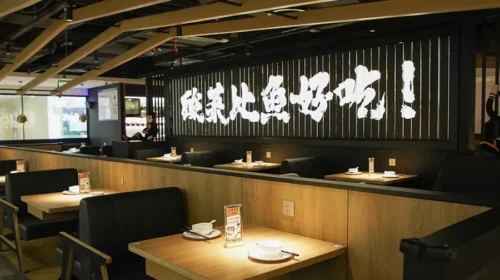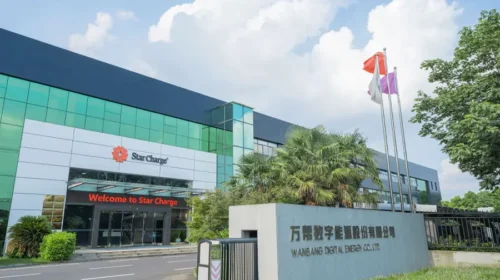Man Wah sets spin-off in motion for its sofa tech unit

The Chinese furniture giant is preparing to list its components subsidiary Remacro to raise the technology unit’s profile and open an independent funding channel
Key Takeaways:
- After listing on China’s NEEQ market, Remacro will remain a subsidiary of Man Wah, with the parent holding over 80% of its shares
- Revenues have been slipping at Man Wah and Remacro, hit by China’s property market woes and fragile consumer confidence
By Lee Shih Ta
Chinese furniture maker Man Wah Holdings Ltd. (1999.HK) is a global leader in the supply of sofas and chairs that recline or swivel for maximum comfort.
The firm’s products rely on metal frames, motors and control modules to provide the required motion, supplied by Man Wah subsidiary Remacro Technology Co. Ltd.
For listing purposes, the two companies are in the process of decoupling, although they will stay within the same business family.
Man Wah announced on Oct. 31 that its motion technology unit had applied for an independent listing on China’s National Equities Exchange and Quotations (NEEQ) market, a forum for small and medium-sized businesses seeking investor backing.
Remacro is an inconspicuous link in Man Wah’s supply chain, but its components determine whether products such as the “Cheers” sofa range can operate smoothly and compete effectively in global markets.
Remacro’s revenues are classified under “other products” in Man Wah’s earnings. The segment brought in revenue of about HK$1.67 billion ($215 million) for thefiscal year to the end of March, a year-on-year drop of 8.4%, as weak consumer confidence and property woes weighed on furniture demand.
However, its gross profit margin rose three percentage points from a year earlier to a robust 30%.
Smart manufacturing engine
Remacro has emerged out of Man Wah’s transformation from a traditional furniture maker into a producer of smart engineering for the home. As a separately listed company, the technology division would gain access to funding as a brand in its own right to support continued innovation.
The NEEQ market launched in 2013 to provide a financing channel for smaller enterprises that were not ready to list on the Shanghai or Shenzhen exchanges. Since 2023, the NEEQ has evolved a system of pathways, or tiers, for participating companies. Those in the highest category, the Select Tier, can apply to transfer their listings to the Beijing Stock Exchange. As a result, the NEEQ has evolved from being an over-the-counter trading hub into an incubation platform for innovative businesses, including smart manufacturing enterprises.
Dual-platform strategy
Remacro is technologically mature, with stable orders, but needs a steady stream of R&D investment. The NEEQ would offer access to Chinese financing and policy-related funds, giving the overall group an equity structure spanning Hong Kong and mainland China.
The parent company is not relinquishing control. Remacro will remain a subsidiary, with its earnings consolidated into the accounts of Man Wah, which retains over 80% ownership. But armed with independent capital, Remacro will be able to serve external clients and expand into other furniture supply chains, while still supporting upgrades for Man Wah’s product line.
The move comes as Man Wah’s business feels the pressure from a weak Chinese property market and sluggish demand for home furnishings. Revenues fell 8.2% to HK$16.9 billion in the last financial year, while its net profit declined 10.4% to HK$2.06 billion, although cost controls pushed gross margin from 39.4% to 40.5%. The company is looking for further efficiencies in automation and smart manufacturing, with added impetus from the Remacro listing.
Man Wah’s share price has been on a bumpy recovery path since the end of last year, rising about 15% over the past six months to HK$4.7, although with a year-to-date decline of 1.6%. Several brokerages, including UBS and CLSA, have recently upgraded their ratings for the company, concluding that China’s property problems are already priced in, while uncertainty about U.S. tariff policies may present some upside opportunities.
Man Wah trades at a forward price-to-earnings (P/E) ratio of around 8.9 times, below peers Jason Furniture (603816.SH) at 16 times and Henglin Home Furnishings (603661.SH) at 17 times. This gap reflects caution among Hong Kong investors towards mainland furniture brands. However, Man Wah benefits from a global presence, stable cash flow and technical expertise through the Remacro business. With Man Wah’s valuation now near historical lows, and potential benefits to be gained from the subsidiary spin-off, the stock could offer scope for future gains.
To subscribe to Bamboo Works weekly free newsletter, click here





